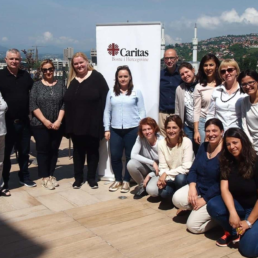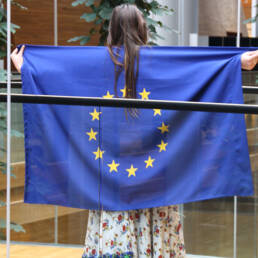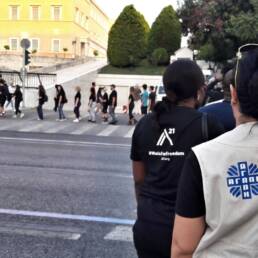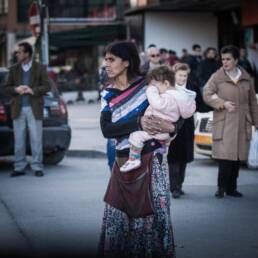Author
Geneviève Colas
Caritas Europa expert in the field of human trafficking
Today is the World Day against Trafficking in Persons, a day dedicated to promoting and protecting the rights of victims of this abhorrent crime, and to raising awareness about their situation.
This year the focus of the day is to highlight the importance of governmental action. But the call to action is not only to governments, it is also about encouraging everyone to take action against trafficking.
For the Caritas network, human trafficking is an injustice and a crime that deeply affects the victims’ human dignity. Human trafficking for the purpose of any form of exploitation – sexual exploitation, forced labour, slavery, obligation to commit crimes, organ trafficking, forced marriages, begging, etc. – is a crime that takes advantage of the desperate situations in which the most vulnerable and impoverished people live.
Four challenges to fight human trafficking
To fight human trafficking, Caritas’ first challenge is promoting an integral human development project rooted in the community, which allows the potential victims to find the means to provide for themselves in a sustainable way. This will help protecting them for becoming victims of perpetrators.
Our second challenge is to convince authorities and political leaders to put in place legal and safe pathways for migration, allowing for safe and dignified means for migration. This is the reason behind our advocacy efforts for national governments to implement the UN’s Global Compact for Safe, Orderly and Regular Migration (GCM).
The third challenge is to encourage and promote Civil Society Organisations’ (CSOs) role in the fight against human trafficking. CSOs need support to integrate sensibilisation and prevention mechanisms into all their development projects at the grassroots level, in their advocacy efforts and in their humanitarian responses to emergencies.
Finally, the fourth challenge is to change our consumption habits in order to avoid contributing to the exploitation chains in the fabrication and supply of products.
At the European level, the European Commission’s Anti-Trafficking Directive (2011/36/EU), followed by the 2018 report, provides a series of recommendations for Member States to fight human trafficking.
About the author
Geneviève Colas, from Caritas France (Secours Catholique), is member of the European Commissions’ Civil Society Platform against trafficking in human beings. She is Caritas Europa’s expert on the topic and, along with other European Caritas organisations, works to put in place prevention strategies at the national level to address this topic from a humane perspective.









